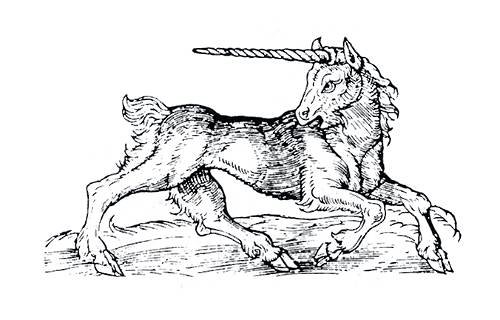
When I think of a unicorn, what I am thinking of is certainly not nothing; if it were nothing, then, when I think of a griffin, I should also be thinking of nothing, and there would be no difference between thinking of a griffin and thinking of a unicorn. But there certainly is a difference; and what can the difference be except that in the one case what I am thinking of is a unicorn, and in the other a griffin? And if the unicorn is what I am thinking of, then there certainly must be a unicorn, in spite of the fact that unicorns are unreal. In other words, though in one sense of the words there certainly are no unicorns–that sense, namely, in which to assert that there are would be equivalent to asserting that unicorns are real–yet there must be some other sense in which there are such things; since, if there were not, we could not think of them.
— G.E. Moore, Philosophical Studies, 1922
